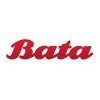Filter interviews by
Clear (1)
Crocs Associate Interview Questions and Answers
Crocs Associate Interview Experiences
1 interview found
Top trending discussions






Interview questions from similar companies

I applied via Walk-in and was interviewed in Apr 2022. There were 3 interview rounds.
Interview Preparation Tips
Apply even if you're not fully qualified. ...
Job search like it's your job. ...
Use informational interviews to network. ...
Set yourself apart with letters of recommendation. ...
Know yourself and what you want. ...
Pump yourself up and stay positive.

I applied via Company Website and was interviewed before Sep 2022. There were 4 interview rounds.

Interview Preparation Tips
Productivity and STO Stock Transfer Order and self Life percentage expiry and Near Expiry. Damage Posting.

I applied via Walk-in and was interviewed before Oct 2021. There were 3 interview rounds.
Interview Preparation Tips
- How to sale
BUT THE WORK PRESSURE IS HIGH
BURN YOUR BLOOD AND SALE THE XYZ

I applied via Walk-in and was interviewed before Sep 2022. There were 2 interview rounds.
Interview Preparation Tips

I applied via Referral and was interviewed before Feb 2023. There was 1 interview round.

Interview Questionnaire
2 Questions
- Q1. Why you choose this job role only
- Q2. If somebody give you the better salary but different organisation. Which will you choose
Interview Preparation Tips

Consultant Interview Questions & Answers
Aditya Birla Fashion and Retailposted on 15 Jan 2025

Senior Associate Interview Questions & Answers
Aditya Birla Fashion and Retailposted on 28 Jan 2025
I appeared for an interview before Jan 2024.
Interview Preparation Tips
Crocs Interview FAQs
Recently Viewed
Tell us how to improve this page.
Interview Questions for Popular Designations
- Senior Associate Interview Questions
- Associate Software Engineer Interview Questions
- Associate Consultant Interview Questions
- Process Associate Interview Questions
- Associate Engineer Interview Questions
- Research Associate Interview Questions
- Business Development Associate Interview Questions
- Customer Service Associate Interview Questions
- Show more
Crocs Associate Interview Process
based on 1 interview
Interview experience
Interview Questions from Similar Companies
|
Store Manager
18
salaries
| ₹2.4 L/yr - ₹4.6 L/yr |
|
Assistant Manager
5
salaries
| ₹2.1 L/yr - ₹4 L/yr |
|
Merchandising Manager
5
salaries
| ₹18.7 L/yr - ₹39 L/yr |
|
Senior Logistics Manager
4
salaries
| ₹12 L/yr - ₹15 L/yr |
|
Head Visual Merchandising
4
salaries
| ₹20 L/yr - ₹42 L/yr |

Bata

Reliance Retail

Aditya Birla Fashion and Retail

Metro Brands
- Home >
- Interviews >
- Crocs Interview Questions >
- Crocs Associate Interview Questions











